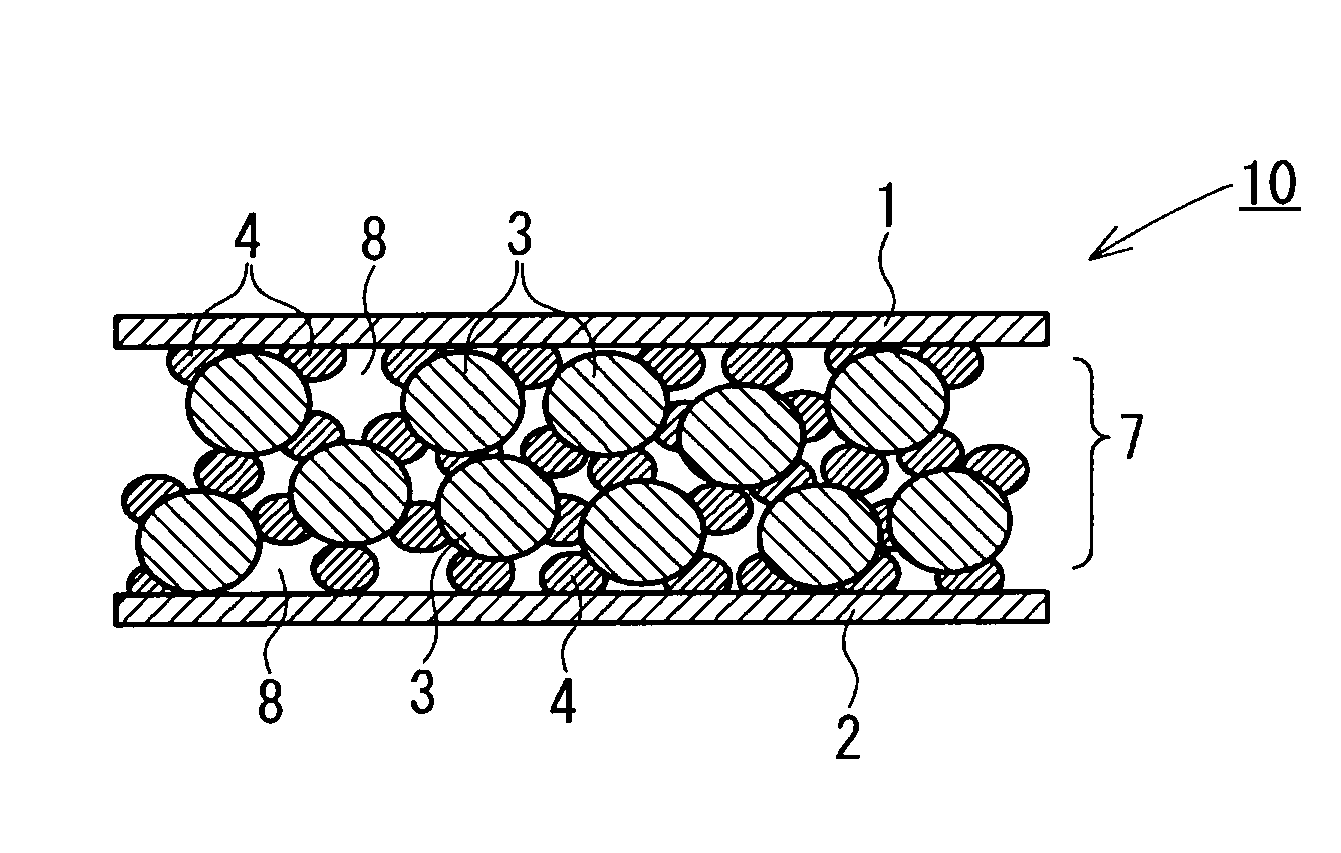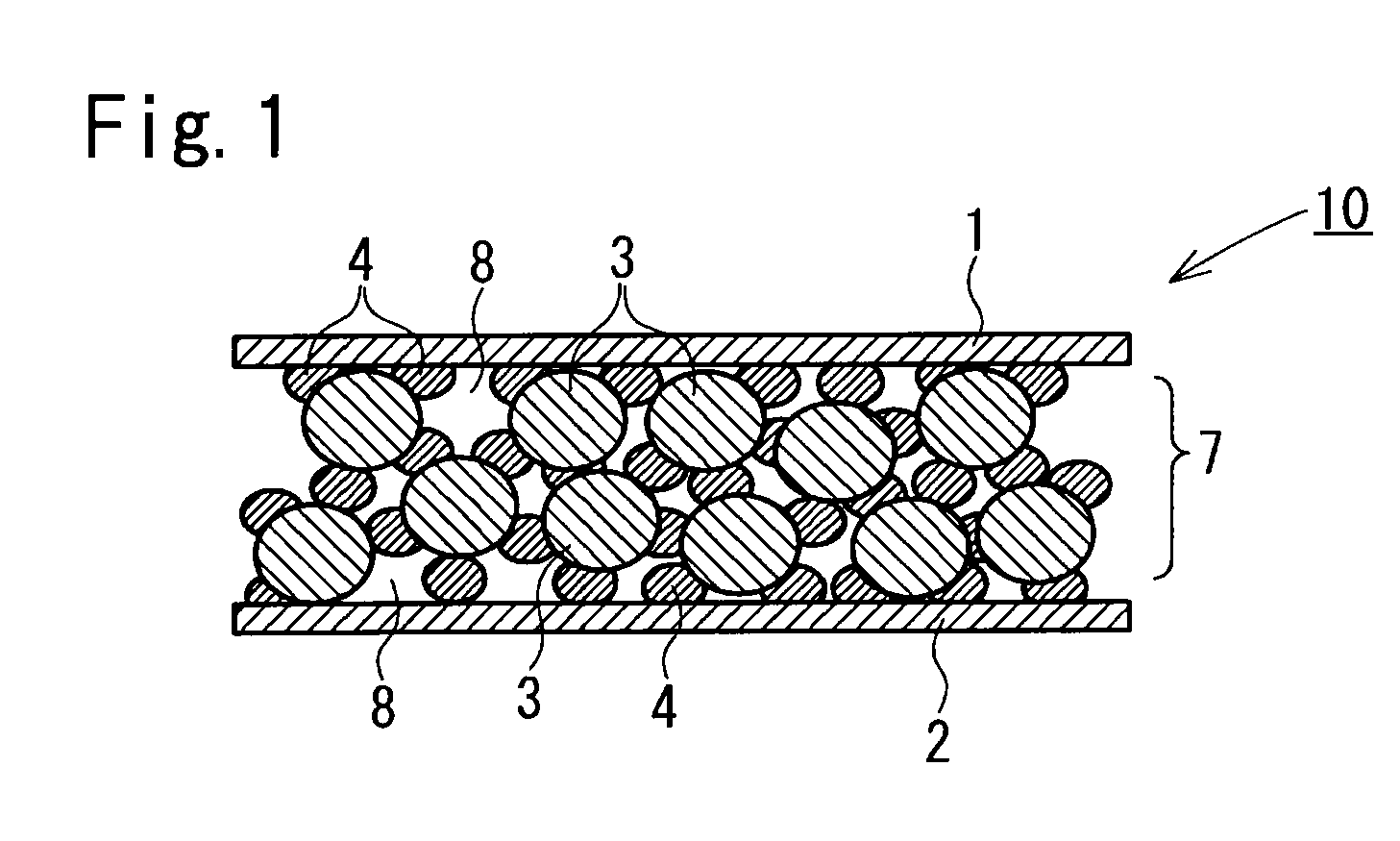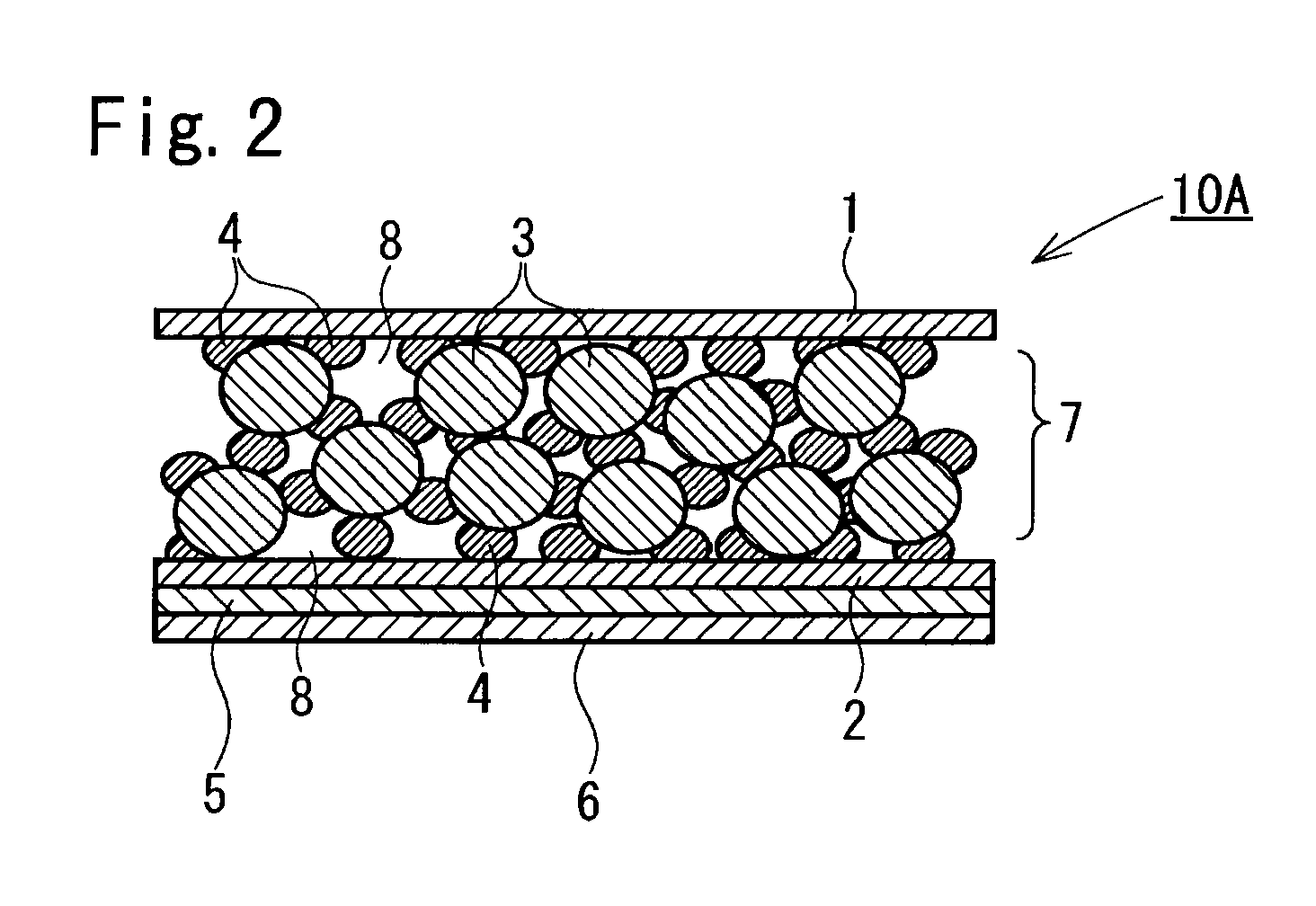Humidity-conditioning sheet
a technology of moisture-conditioning sheet and moisture-conditioning technology, which is applied in the direction of filtration separation, separation process, other domestic objects, etc., can solve the problem that the void cannot be effectively utilized for controlling humidity, and achieve the effect of excellent reversibility and responsiveness of moisture adsorption/desorption ability
- Summary
- Abstract
- Description
- Claims
- Application Information
AI Technical Summary
Benefits of technology
Problems solved by technology
Method used
Image
Examples
example 1
[0255]In a 5 L separable flask (with a jacket) made of glass and having an air-open water cooled condenser attached to the top thereof, 1,000 g of pure water charged. Then, 1,400 g of tetramethoxysilane was charged to the flask over 3 minutes under stirring at 80 rpm. The molar ratio of water / tetramethoxysilane was about 6 / 1.
[0256]In addition, hot water of 50° C. was passed through the jacket of the separable flask. Then, stirring was continued and then stopped when the content reached the boiling point. Then, hot water of 50° C. was passed through the jacket for about 0.5 hour to gelate the produced sol.
[0257]Then, the resultant gel was rapidly taken out and ground by passing through a nylon net with an opening of 600 microns to prepare powdery wet gel (silica hydrogel). Then, g of the hydrogel and 450 g of pure water were charged in a 1 L glass autoclave and subjected to hydrothermal treatment at 180° C. for 3 hours. Then, the resultant product was passed through a nylon net havin...
example 2
[0268]A humidity-conditioning sheet was produced under the same conditions as in Example 1 except that the same silica and thermoplastic resin powder as in Example 1 were uniformly mixed at a weight ratio (resin weight / silica weight) of 1 / 1.
[0269]The evaluation results of the resulting humidity-conditioning sheet are shown in Table 3.
[0270]The thickness and void ratio of the humidity-conditioning layer formed are also shown in Table 3.
example 3
[0271]A humidity-conditioning sheet was produced under the same conditions as in Example 1 except that the same silica as in Example 1 was uniformly mixed with thermoplastic resin powder (polyurethane powder; coefficient of water absorption, 1.34%; water contact angle 75°; MFR 12 g / 10 min, melting point 115° C., average particle diameter 34 μm) at a weight ratio (resin weight / silica weight) of 1 / 2.
[0272]The evaluation results of the resulting humidity-conditioning sheet are shown in Table 3.
[0273]The thickness and void ratio of the humidity-conditioning layer formed are also shown in Table 3.
PUM
| Property | Measurement | Unit |
|---|---|---|
| particle diameter | aaaaa | aaaaa |
| Melt Flow Rate | aaaaa | aaaaa |
| water absorption coefficient | aaaaa | aaaaa |
Abstract
Description
Claims
Application Information
 Login to View More
Login to View More - R&D
- Intellectual Property
- Life Sciences
- Materials
- Tech Scout
- Unparalleled Data Quality
- Higher Quality Content
- 60% Fewer Hallucinations
Browse by: Latest US Patents, China's latest patents, Technical Efficacy Thesaurus, Application Domain, Technology Topic, Popular Technical Reports.
© 2025 PatSnap. All rights reserved.Legal|Privacy policy|Modern Slavery Act Transparency Statement|Sitemap|About US| Contact US: help@patsnap.com



